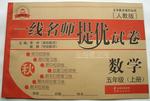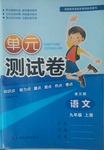题目内容
James shook his money box again.
Nothing! He carefully counted the coins that lay on the bed. All that he had was 90! How on earth (究竟) was he going to get the rest of the money?
He knew that his friends all had bicycles. It was hard to hang out with people when you were the only one without a bicycle. He thought about what he could do. There was no point asking his parents, for he knew they had no extra money.
There was only one way to get money, and that was to earn (挣) it. He would have to find a job. He decided to ask Mr Clay for advice.
“Well, you can start right here,” said Mr Clay. “You see, my windows need cleaning and my car needs washing.”
That was the beginning of James’ part-time job.
For the next three months he worked every day after finishing his homework. He took dogs for walks, cleaned out cupboards and repaired books.
The day finally came when James counted his money and found $ 94.32. He wasted no time and went down to the shop to pick up the bicycle he wanted. He rode home proudly, looking forward to showing his new bicycle to his friends. It had been hard working for the money, but James knew that he valued (珍惜) his bicycle far more because he had bought it with his own money. He had achieved what he thought was impossible, and that was worth even more than the bicycle.
小题1:Why didn’t James ask his parents for help?
小题2:In order to buy a bicycle, James .
小题3:James did the following jobs EXCEPT .
小题4:How much money did James earn?
小题5:What does the writer want to tell us?
Nothing! He carefully counted the coins that lay on the bed. All that he had was 90! How on earth (究竟) was he going to get the rest of the money?
He knew that his friends all had bicycles. It was hard to hang out with people when you were the only one without a bicycle. He thought about what he could do. There was no point asking his parents, for he knew they had no extra money.
There was only one way to get money, and that was to earn (挣) it. He would have to find a job. He decided to ask Mr Clay for advice.
“Well, you can start right here,” said Mr Clay. “You see, my windows need cleaning and my car needs washing.”
That was the beginning of James’ part-time job.
For the next three months he worked every day after finishing his homework. He took dogs for walks, cleaned out cupboards and repaired books.
The day finally came when James counted his money and found $ 94.32. He wasted no time and went down to the shop to pick up the bicycle he wanted. He rode home proudly, looking forward to showing his new bicycle to his friends. It had been hard working for the money, but James knew that he valued (珍惜) his bicycle far more because he had bought it with his own money. He had achieved what he thought was impossible, and that was worth even more than the bicycle.
小题1:Why didn’t James ask his parents for help?
| A.Because they didn’t love him. |
| B.Because they didn’t have extra money. |
| C.Because they lived far away from him. |
| D.Because they didn’t need a bike. |
| A.found a job |
| B.borrowed money from his classmates |
| C.sold his old books |
| D.asked his grandfather for some money |
| A.walking dogs | B.cleaning out cupboards |
| C.cooking meals | D.repairing books |
| A.$24.52 | B.$90 | C.$94.32 | D.$69.80 |
| A.We should buy everything we want. |
| B.We should get what we want through hard work. |
| C.Parents shouldn’t give children any money. |
| D.We shouldn’t show off new things to poor children. |
小题1:B
小题2:A
小题3:C
小题4:D
小题5:B
试题分析:这篇短文中詹姆斯想要一辆新的自行车,但是他的父母也不是很有钱。最后詹姆斯通过做兼职工作,通过自己的劳动为自己买了一辆自行车,为此他很珍惜这两自行车。
小题1:根据第二段There was no point asking his parents, for he knew they had no extra money.描述,可知选B。
小题2:根据He would have to find a job. 及下文描述,可知他为此找了一份工作,故选A。
小题3:根据He took dogs for walks, cleaned out cupboards and repaired books.描述,可知选C。
小题4:根据The day finally came when James counted his money and found 24.52描述,计算可知94.32-24.52=69.80,可知选D
小题5:这篇短文中詹姆斯通过自己的努力工作,获得了自己的自行车。故选B,我们要通过努力工作获得自己想要的东西。
点评:本文浅显易懂,层次分明,学生很容易把握文中中心内容。答题中注意带着问题阅读短文,一般就能顺利找出答题依据。对于不能直接找到根据的问题注意联系上下文,找出相关段落,总结出正确答案。

练习册系列答案
 一线名师提优试卷系列答案
一线名师提优试卷系列答案 阳光试卷单元测试卷系列答案
阳光试卷单元测试卷系列答案
相关题目
